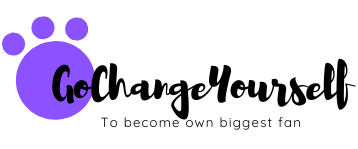Let’s not sugarcoat it—remote learning is tough sometimes. Sure, it sounds amazing at first (no commute, study in your PJs, fridge nearby), but once reality kicks in, it’s easy to feel stuck, distracted, or just plain overwhelmed. Been there?
Whether you’re juggling Zoom lectures, online assignments, or just trying to stay on top of your schedule without losing your mind, you’re not alone. The good news is that with a few small tweaks to how you manage your time and space, things can feel a lot more manageable.
So if you’re looking for real, doable productivity hacks for remote learning students, here’s what’s worked for a lot of us—and might work for you too.
Table of Contents
1. Create a Space That’s Just for Studying
We all love the couch, but trying to focus while half-laying down with Netflix just a click away? Not the best idea.
You don’t need a home office or anything fancy. Just pick a corner—desk, table, even a cleared-off dresser—and make it your spot. Throw a lamp there, grab your notebooks, maybe light a candle or add a plant, and you’re set.
Why it matters: When your brain knows “this is where we study,” it starts to snap into focus mode a lot faster.
2. Build a Loose Routine (Not a Boot Camp Schedule)
One of the weirdest things about remote learning is how quickly time disappears. You blink, and somehow it’s 4 PM and you haven’t done that one quiz you swore you’d finish by noon.
You don’t need a color-coded hourly planner, but having a general structure helps—think morning block, mid-day work session, afternoon wind-down.
Hot tip: Try starting your day with a short to-do list or even a sticky note with 3 main goals. That alone can keep you from floating through the day.
3. Use the 25-5 Rule (It’s Not Just a Trend)
You’ve probably heard of the Pomodoro Technique by now—25 minutes of focused work, followed by a 5-minute break. It sounds simple, and it is… but it really works.
It gives your brain just enough time to stay engaged without zoning out, and the short breaks help you reset.
App rec: “Focus Keeper” or “Forest” if you want something minimal and clean.
4. Break Work Into Mini Goals
Big assignments are the worst because they feel like this looming cloud of stress. But when you chop them up into smaller steps, suddenly things feel way more doable.
So instead of writing “Finish project,” try this:
- Research 2 sources
- Write intro paragraph
- Format citations
Each time you check something off, you get that tiny hit of accomplishment. Feels good, right?
5. Use the Right Tools (Without Falling Down a Tech Rabbit Hole)
Productivity tools can either save your day or become another distraction. The trick? Stick with simple stuff that actually helps you stay organized.
Some go-tos:
- Notion or Google Keep for notes and lists
- Trello or a whiteboard for task planning
- Grammarly for writing polish
- Cold Turkey or StayFocusd to block distractions
Test one or two, and if they help, great. If not? Ditch them and go old-school with a pen and notebook.
6. Turn Off Notifications. Seriously.
It sounds obvious, but it’s wild how much time we waste on random notifications. You check one text, then somehow end up watching a 30-minute video on how pencils are made. Happens to the best of us.
Try this:
Put your phone on Do Not Disturb during study blocks, or even toss it in another room. You’ll survive—I promise.
7. Don’t Forget Your Body and Brain Need Rest Too
Remote learning can trick you into thinking you should be productive all the time, but that’s a fast track to burnout. Mental energy runs out—especially when you’re staring at screens all day.
So don’t feel bad for taking breaks. Go for a walk. Stretch. Nap. Breathe. Call a friend. Eat real food. And sleep. Sleep is not optional if you want your brain to function.
FAQ:
1. What are the best productivity hacks for remote learning students?
Some of the best hacks include setting up a dedicated study space, following a daily routine, using the Pomodoro Technique, breaking tasks into small goals, and minimizing distractions.
2. How can I stay focused while studying from home?
Create a quiet, clutter-free workspace, use tools like Pomodoro timers, and put your phone on Do Not Disturb during study sessions.
3. Why is a dedicated study space important for remote learning?
It helps train your brain to associate that area with focus and learning, making it easier to concentrate.
4. What is the Pomodoro Technique and how does it help?
It’s a time-management method where you work for 25 minutes and then take a 5-minute break. This keeps your mind fresh and focused.
5. What’s a good daily routine for remote students?
Wake up at a consistent time, schedule study blocks, plan short breaks, and wind down in the evening to avoid burnout.
6. How do I avoid procrastination while studying online?
Set small, manageable goals, use task managers, and create a low-distraction environment to keep momentum going.
7. Are there any apps that help with remote learning productivity?
Yes! Try Notion for organization, Forest for focus, Grammarly for writing, and Trello or Asana for managing tasks.
8. What’s the best way to manage time effectively as an online student?
Use digital calendars, block time for each task, and prioritize the most important assignments first.
9. How can I stay motivated without face-to-face classes?
Reward yourself for completing tasks, connect with classmates virtually, and set short-term goals to track your progress.
10. Should I study in my bedroom or elsewhere?
If possible, avoid studying on your bed. Choose a space that’s separate from where you relax or sleep to improve focus.
11. What are micro-goals and why are they helpful?
Micro-goals are small, specific tasks that are easy to complete. They help reduce overwhelm and keep you motivated.
12. How do I balance screen time with self-care?
Take regular breaks, move around, avoid screens during breaks, and get enough sleep to recharge.
13. What are some signs of burnout in remote learning?
Feeling constantly tired, losing motivation, trouble focusing, and irritability are common signs of burnout.
14. How can I make online studying less boring?
Switch up subjects, use interactive study methods like quizzes or flashcards, and reward yourself after tasks.
15. Is it okay to take naps during the day as a remote student?
Yes! Short naps (20–30 minutes) can boost alertness and improve concentration.
16. How can I keep track of assignments and deadlines?
Use a digital planner like Notion, Trello, or Google Calendar to organize tasks and get reminders.
17. What are some good physical habits for staying productive?
Stretch regularly, stay hydrated, eat nourishing foods, and make time for daily movement or exercise.
18. How do I block distractions while working online?
Use tools like Cold Turkey or StayFocusd to block distracting websites and keep your phone out of reach.
19. How many hours should a remote student study per day?
It depends on your course load, but 4–6 focused hours with breaks is a solid starting point for most students.
20. What if these productivity hacks don’t work for me?
Not every tip works for everyone. Try different approaches, listen to your energy levels, and customize strategies that fit your lifestyle.
-
10 Superfoods for Healthy Eyes That Boost Your Vision
Let’s be honest — we don’t always treat our eyes the way they deserve. From binge-watching late-night shows to scrolling endlessly through social media, our vision takes a lot. The problem? We often forget how crucial eye health really is… until something starts to go wrong. The good news? You don’t need to wait for…
-
Importance of Taking Risks for Success
Let’s face it—taking risks is scary. Whether it’s quitting a job, starting a business, or even just speaking up in a meeting, the idea of stepping outside what’s familiar can feel downright uncomfortable. But here’s the thing: most people who achieve real success didn’t get there by playing it safe. They took leaps. They bet…
-
What to do After Layoff ? | 7 Steps to Bounce Back Stronger and Smarter
Losing your job is one of those moments that just hits differently. It’s not just about the paycheck—it’s about routine, identity, even pride. One minute you’re gearing up for a busy quarter, and the next, you’re trying to figure out what the heck just happened. If you’re sitting there wondering what to do after layoff,…







